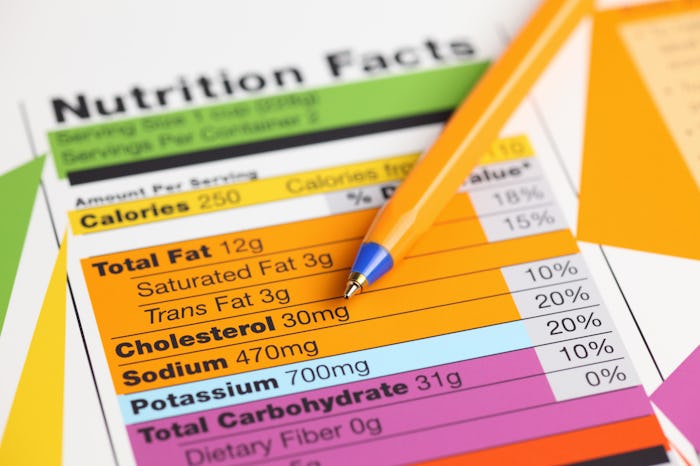Life

The Most Outdated Nutrition Advice To Ignore
Figuring out how to eat healthy can be a challenge. There's a lot of conflicting advice out there, and some diet plans seem more focused on fast results and looking good rather than eating well. It can hard to separate the good advice from the bad and, on top of that, there are some pieces of outdated nutrition advice you should ignore if you want to live a healthier lifestyle.
It's not your imagination if you think that the recommendations on nutrition change every few years— they do. The Washington Post reported that the government's "Dietary Guidelines for Americans" are updated every five years. According to the most recent update, as many as five cups of coffee a day is fine and skipping breakfast is no longer considered a bad move. That may sound like blasphemy to people who've grown up hearing that "breakfast is the most important meal of the day," but it just goes to show that people's understanding of nutrition is always evolving.
There isn't a quick fix when it comes to eating healthy and getting in better shape, and there's not necessarily a one-sized fits all solution. Plus, some people have medical conditions or health issues that make sudden changes to their diet dangerous. That's why it's important to always talk to your doctor if you're planning to change things up.
With all that in mind, here are seven pieces of outdated nutrition advice that are no longer relevant for most people and worth ignoring.
1Fat Should Be Avoided
Cutting fat may seem like a good way to eat healthier, but it can backfire. According to the BBC, you're better off focusing on healthy fats (like fish, nuts, and avocados) rather than low-fat foods. That's because a diet too-low in fat can lead to some serious issues like vitamin deficiencies and weakened immunity. The New York Times also noted that cutting back on fats can actually lead people to overindulge on carbs, which isn't ideal either.
2Cholesterol Is A No-No
Cutting cholesterol from your diet may hurt more than it helps. There are two different kinds — HDL and LDL — and they aren't created equal. According to Healthline, LDL is found in things like fried foods and baked goods and should be avoided because it can raise your risk for your heart disease. HDL, however, can keep your cholesterol levels in check and keep your arteries clear, so having some in your diet is beneficial. It can be found in things like olive oil, beans, and high fiber foods.
3Frozen Foods Are An Unhealthy Choice
Just because it's found in the frozen food section doesn't mean you have to skip it. According to the Academy of Nutrition and Dietetics, frozen fruits and vegetables are perfectly healthy additions to your freezer. It's the processed stuff like frozen meals and pizzas you'll want to skip.
4You Shouldn't Eat Late In The Evening
If you've ever been told that eating late at night is bad for your waistline, feel free to ignore it. Register dietitian Lisa Hayim told Brit + Co. that when you eat isn't as important as your overall calorie intake and having a balanced diet.
5Always Go Organic
Think organic always means better? Not necessarily. According to the American Academy of Pediatrics (AAP), "there's no direct evidence that consuming an organic diet leads to improved health or lower risk of disease," and more research is needed on the topic. The AAP recommended that people focus more on getting plenty of fruits, vegetables, whole grains, and low-fat dairy products whether they're organic or not.
6Avoid Carbs As Much As Possible
Drastically cutting carbohydrates from your diet isn't the healthiest idea. According to Reader's Digest, cutting carbs can actually make you tired, nauseous, and lead to trouble focusing. It's a better idea to keep carbs in your diet, but in moderation.
7The More Protein, The Better
You may think that eating more protein should always be your goal. But it's important to remember that not all proteins are created equal. The Harvard School of Public Health noted that there are healthy proteins (like fish, beans, nuts, and poultry) and unhealthy ones (like red meat and processed meat). And according to Prevention, too much protein can cause a number of issues like weight gain and digestion problems.